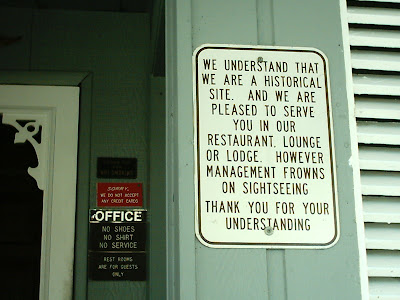
I had lived in Amsterdam for a decade and my daughter was born there, so the New England winter scene was nothing short of spectacular for us both. Amsterdam winters are mild, and if it does snow, I rush to an upper-story window to watch the airborne flakes. More often than not, they melt before reaching the ground.
Another difference: the snow in Connecticut that day was heavy enough to weigh down pine branches and restrict car routes to those which had been shoveled free, but the point was - the roads and entrances to lots had indeed been cleared for traffic. The Netherlands leads the pack in protecting human infrastructure against the sea, but a light dusting of snow inevitably overburdens road-clearing resources each time.
Nevertheless, progress was slow on the drive back to my Mother’s home. By sometime after 6 o’clock, the rental van needed gas and we needed a snack, so on December 20, 1989, my daughter and I ate hotdogs sold at a roadside service station in the USA. This was possibly her first real hotdog. No one would dare serve second-rate dogs to Connecticut motorists, and these were really good. I kept the receipt, and used it to note the day's historic importance before tucking it into my wallet.
We drove on, happy with the warm food, the exotic setting and with each other’s company. The car radio was another source of pleasure, with Connecticut’s Hispanic stations a major attraction to both me and my half-Colombian daughter. That day, we listened to less music than usual because the invasion of Panama by U.S. forces dominated the news. I was appreciative of the listening time carved out by the car ride. My normal attention to radio and TV news is always interrupted on the road, especially during family visits.
The news was not surprising: another U.S.-backed agent in Latin America was being taken down. It took a few days to capture General Noriega, allowing time for the image of his face to take on a dartboard function in the press and on TV. All reports backed the notion that Noriega was big, nasty fish, that it was worth killing people to get him and that his removal would pave the way for government by virtue. Noriega’s pock-marked face drew derision nationwide.
Many, many Panamanians died as a result of the invasion. To the extent that I was able to tune into mainstream TV and radio during that period - I heard no one questioning U.S. motive or strategy. Friends and family, even those attached to critical, left-ish causes in the past - they were either indifferent towards or enthusiastic about the assault on Noriega. Articulate, well-educated individuals sneered at his bad complexion. The only exception was my Aunt, my daughter’s Great-Aunt, who we had visited that day in the Connecticut countryside.
My daughter had rolled in the snow like a pup, bending over to rub her long dark hair in the fresh drifts, shrieking with delight as she jumped up and whipped her head around. I was deeply happy, seeing her delirious in play, and remembering being a small child myself on those same hills, where my lanky woodsman Uncle would glide along on snowshoes in order to pull my sled. The final packing before moving from this home was happening that week in December. This chance at a final romp was pure coincidence.
My Aunt was my father’s baby sister. Clan complexities had imposed a fairly formal grid on our communications, and that day was not much different. While my daughter rushed around in celebration of all that was new and snowy and beautiful, I cautiously asked my Aunt what she thought about the invasion of Panama. She felt that truth was being withheld by the government, and she questioned the legality of propping up a leader elsewhere and then ferociously bringing him down, asking U.S. citizens to back both campaigns. Our conversations expanded into other fields after that day.
























